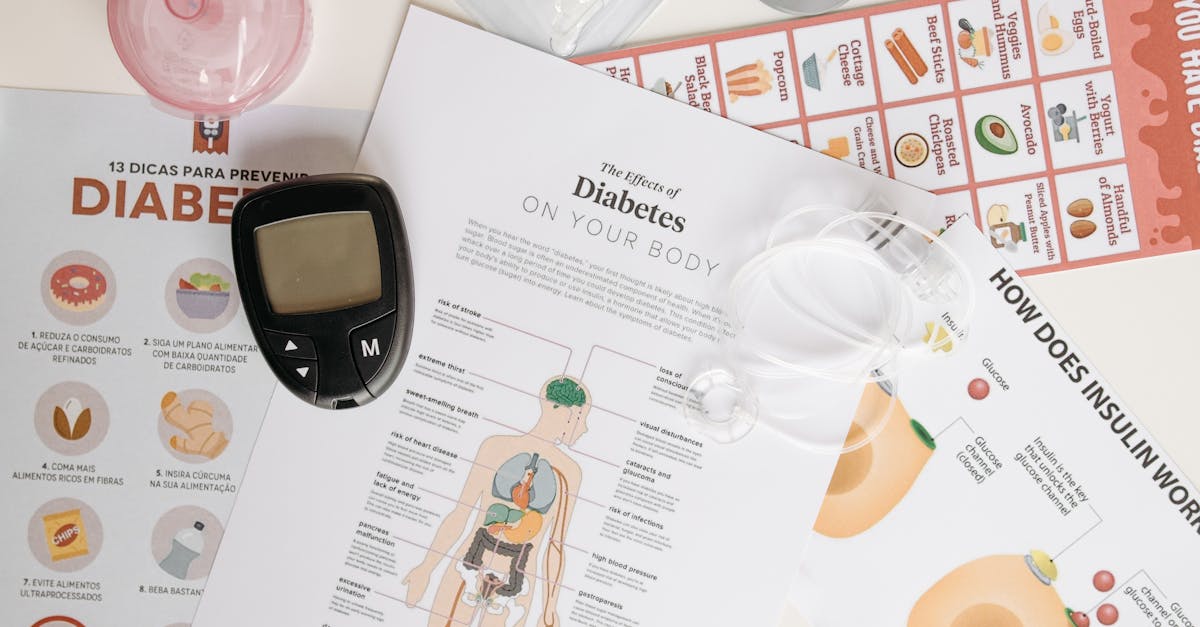Embracing Preventive Healthcare for Lasting Vitality
Introduction to Preventive Healthcare
Preventive healthcare is a proactive approach to managing health before issues arise, focusing on interventions that prevent diseases. Rather than treating illnesses as they occur, preventive health aims to maintain well-being and prolong life. As modern medicine evolves, there's a growing understanding of the value of preventing diseases rather than curing them. This lifestyle includes regular screenings, vaccinations, and adopting healthy habits. It is an investment in a future where individuals age gracefully with fewer health complications. By emphasizing prevention, individuals not only reduce healthcare costs but also enhance their quality of life.
Advertisement
Understanding the Preventive Approach
Preventive healthcare encompasses a wide range of medical practices that protect against disease onset and progression. This includes primary prevention like immunizations and lifestyle changes to secondary measures such as early detection through screenings. It's about making informed choices regarding diet, exercise, and mental health, which together contribute to a robust immune system. Routine check-ups are crucial in identifying potential health issues before they escalate. Preventive care is holistic, considering both physical and mental health to improve overall well-being. Incorporating these practices ensures a comprehensive shield against potential health setbacks.
Advertisement
The Role of Regular Screenings
Routine health screenings are instrumental in detecting diseases early when they are most treatable. Tests like mammograms, blood pressure checks, and cholesterol screenings identify risks before they become more severe problems. Regular screenings allow healthcare providers to tailor interventions specific to individuals’ needs. They are an integral part of preventive health, covering a spectrum of conditions from heart disease to various cancers. By understanding personal health trends over time, individuals can make informed lifestyle changes. Encouraging regular screenings shifts focus from reactive to proactive healthcare, enhancing longevity and vitality.
Advertisement
Nutrition and Its Preventive Power
Diet plays a pivotal role in preventive healthcare, forming the foundation of a healthy lifestyle. Consuming a balanced diet rich in fruits, vegetables, whole grains, and lean proteins supports optimal bodily functions. It aids in weight management, boosts immune function, and reduces the occurrence of diet-related diseases. Incorporating anti-inflammatory foods and avoiding processed sugars can help prevent chronic illnesses. Nutrition education empowers individuals to make healthier choices, ultimately reducing healthcare burdens. Balanced nutrition is not just about managing weight but also about fortifying the body against potential illnesses.
Advertisement
The Significance of Physical Activity
Regular physical activity is a cornerstone of preventive healthcare, improving heart health, strength, and mental well-being. Exercise aids in regulating blood sugar levels, reducing the risk of diabetes, and managing stress. Activities ranging from walking to strength training are encouraged as they enhance cardiovascular and muscular health. Consistent exercise contributes to mental health, reducing anxiety, depression, and stress levels. Engaging in regular physical activities also encourages social interaction and a sense of community. Exercise, as part of preventive healthcare, champions overall wellness and vitality.
Advertisement
Mental Health and Emotional Well-Being
Preventive healthcare recognizes mental health as a key component of overall well-being. Addressing stress, anxiety, and depression is critical in maintaining a healthy lifestyle. Practices like mindfulness, therapy, and meditation are effective preventive measures. Mental well-being is as essential as physical health, influencing lifestyle choices and social interactions. Acknowledging and addressing mental health needs early can prevent more severe issues from developing. The integration of mental health care into preventive strategies offers a holistic approach, ensuring both mind and body are cared for.
Advertisement
Vaccinations and Disease Prevention
Vaccinations are a fundamental aspect of preventive healthcare, providing immunity against various infectious diseases. They protect individuals and communities by reducing the spread of diseases like flu, measles, and hepatitis. Immunization schedules often begin at a young age, continuing into adulthood to maintain protection. Staying updated on vaccinations is crucial in preventing outbreaks and maintaining public health. Vaccinations are cost-effective, reducing the need for treatments and hospitalizations. By championing a culture where vaccinations are prioritized, we move towards healthier and resilient societies.
Advertisement
The Socioeconomic Impact of Preventive Healthcare
Preventive healthcare has far-reaching benefits, including economic advantages by reducing healthcare costs. By preventing diseases, there's less reliance on expensive treatments and hospital stays. It promotes a healthier workforce, reducing absenteeism and increasing productivity. On a societal level, preventive care alleviates pressure on healthcare systems, making them more sustainable. Public health campaigns emphasize the importance of preventive measures, contributing to better health outcomes. Thus, investing in preventive healthcare strengthens communities and creates a more efficient healthcare system.
Advertisement
Challenges and Barriers to Preventive Healthcare
Barriers to preventive healthcare include accessibility, awareness, and education. Many individuals lack access to regular check-ups and screenings due to geographical and financial constraints. There's also a need for increased awareness of preventive practices and their long-term benefits. Education systems can play a vital role in enlightening individuals about preventive care from an early age. Removing these barriers requires multi-faceted approaches from policy makers, healthcare providers, and communities. Addressing these challenges ensures that preventive health approaches are broadly implemented and accessible.
Advertisement
Summary and Conclusion
Preventive healthcare is essential to living a vibrant, longer life with fewer health complications. By embracing regular screenings, nutrition, exercise, and mental health practices, individuals can protect their long-term well-being. Preventive measures reduce the prevalence of diseases and healthcare costs, benefitting both individuals and society. Though challenges exist, creating awareness and prioritizing these practices can lead to significant health improvements. By committing to preventive healthcare, we invest in a healthier future for all.
Advertisement


